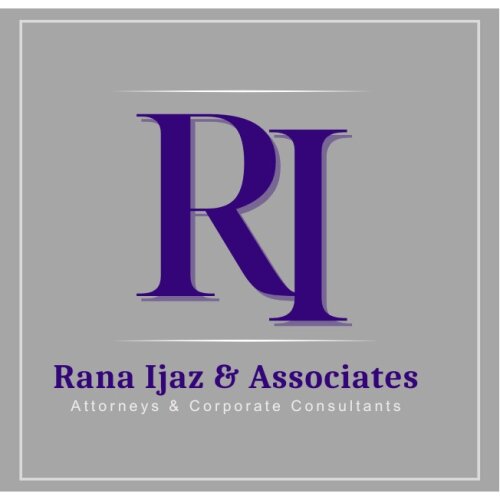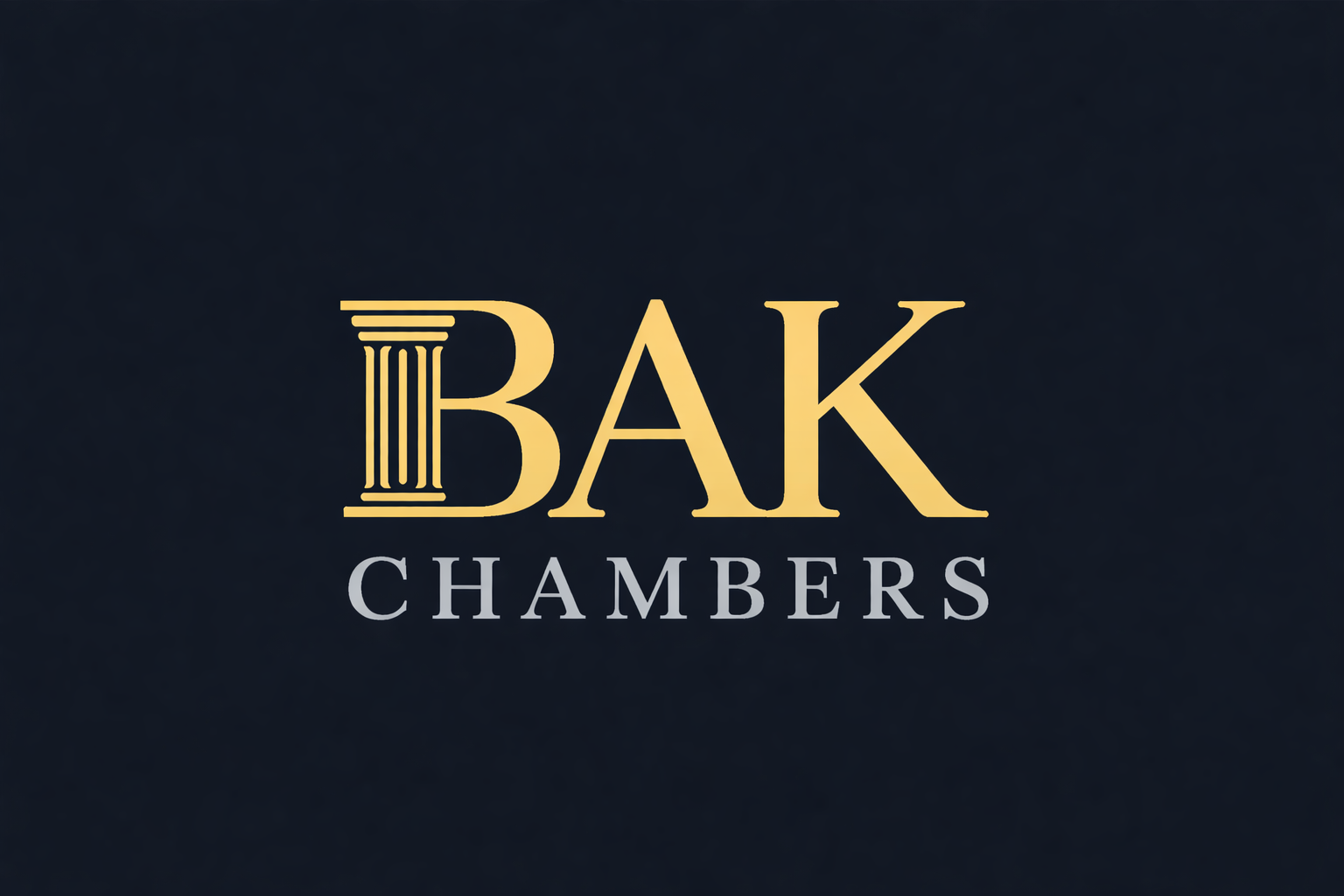Best Private Equity Lawyers in Lahore
Share your needs with us, get contacted by law firms.
Free. Takes 2 min.
List of the best lawyers in Lahore, Pakistan
About Private Equity Law in Lahore, Pakistan
Private equity involves investment in private companies or public companies that are to be delisted, most commonly with the intention of improving operations and increasing value before exiting through a sale or initial public offering (IPO). In Lahore, Pakistan, private equity is a growing area due to economic development and increased interest from both domestic and cross-border investors. The legal environment for private equity transactions in Lahore is shaped by regulatory authorities, local corporate laws, and international practices. Engaging in private equity investments typically requires navigating multiple legal disciplines such as corporate, securities, tax, competition, and contract law, making it essential to understand the local context for asset acquisition, regulatory compliance, and exit strategies.
Why You May Need a Lawyer
A specialized private equity lawyer in Lahore can offer valuable assistance in several critical scenarios, including:
- Navigating the legal requirements for setting up or investing in private equity funds.
- Conducting due diligence on target companies to identify risks and potential liabilities.
- Drafting, reviewing, and negotiating transaction documents such as share purchase agreements, shareholders’ agreements, and investment term sheets.
- Handling regulatory approvals from bodies such as the Securities and Exchange Commission of Pakistan (SECP) and the State Bank of Pakistan (SBP).
- Advising on tax implications and structuring investments in the most efficient manner possible.
- Resolving disputes between investors, stakeholders, or management teams.
- Ensuring full compliance with relevant corporate governance and anti-money laundering laws.
- Assisting with exits, including IPOs, trade sales, or management buyouts.
A lawyer’s expertise can protect your interests throughout the investment cycle and ensure all legal risks are mitigated.
Local Laws Overview
Private equity activities in Lahore are governed by a combination of national and local regulations. Understanding these key legal aspects is crucial:
- Companies Act, 2017: This is the primary statute regulating company incorporation, management, mergers, and acquisitions in Pakistan.
- Securities Act, 2015: Oversees offering and trading of securities, including those involved in private placements and fund structuring.
- Foreign Exchange Regulation Act, 1947: Imposes guidelines on inbound and outbound investments, which is vital for cross-border transactions.
- Income Tax Ordinance, 2001: Addressing tax implications for funds, investors, and target companies.
- Securities and Exchange Commission of Pakistan (SECP) Regulations: SECP issues specific rules for private funds, mergers, and public offerings.
- Competition Act, 2010: Administered by the Competition Commission of Pakistan (CCP), ensures that acquisitions do not violate antitrust or anti-monopoly rules.
- Anti-Money Laundering Laws: Investors and funds must establish know-your-customer (KYC) protocols and perform due diligence on sources of funds.
Local authorities in Lahore may also have specific reporting or registration obligations. It is critical to keep abreast of all current laws and regulations as non-compliance can delay or jeopardize transactions.
Frequently Asked Questions
What is private equity, and how does it work in Lahore?
Private equity in Lahore refers to investments made in private or publicly listed companies (that may be delisted after acquisition), usually to enhance their value and later exit with a profit. Investors pool funds to acquire significant stakes, improve operations, and eventually sell the interest through various forms such as trade sales or IPOs.
What are the main regulatory bodies for private equity in Lahore?
The Securities and Exchange Commission of Pakistan (SECP), State Bank of Pakistan (SBP), and the Competition Commission of Pakistan (CCP) play key roles in regulating private equity activities.
Do foreign investors face restrictions for private equity investments in Lahore?
While Pakistan welcomes foreign investment, there are sector-specific restrictions and requirements for obtaining SBP and SECP approvals, along with compliance with foreign exchange regulations and remittance guidelines.
Why is due diligence important in private equity deals?
Due diligence helps investors uncover potential legal, financial, and operational risks associated with a target company, ensuring informed decision-making and protection of investment.
What is an exit strategy in private equity?
An exit strategy is a plan for investors to realize their gains from an investment. Common exit routes in Lahore include IPOs, sales to strategic buyers, or management buyouts, all requiring careful legal structuring.
Are there specific tax considerations for private equity funds in Pakistan?
Yes, both domestic and foreign investors may be subject to various taxes, including capital gains tax, withholding tax, and corporate tax, making tax-efficient structuring essential.
What kinds of legal agreements are involved in private equity transactions?
Typical documents include share purchase agreements, shareholders’ agreements, non-disclosure agreements, investment term sheets, and exit agreements.
How can disputes between investors or with management be handled?
Disputes are usually resolved based on terms set in the legal agreements, often through arbitration or the courts in Lahore, with specific dispute resolution clauses recommended in all contracts.
What is the typical timeline for a private equity deal in Lahore?
Transaction timelines vary based on the complexity of the deal but generally involve a few months for due diligence, negotiation, regulatory approvals, and completion of legal formalities.
Can I invest in private equity as an individual in Lahore?
Individuals can invest directly or indirectly, but may face minimum investment limits and must comply with all regulatory requirements. Consulting a lawyer is recommended for advice on legal structures and compliance.
Additional Resources
People seeking legal advice on private equity in Lahore may find the following resources and organizations helpful:
- Securities and Exchange Commission of Pakistan (SECP): The key regulatory body for corporate and investment activities.
- State Bank of Pakistan (SBP): For guidance on foreign exchange and remittance regulations.
- Competition Commission of Pakistan (CCP): For advice on competition law compliance related to mergers and acquisitions.
- Pakistan Board of Investment (BOI): For investment policies and incentives.
- Lahore Chamber of Commerce and Industry: Offers business support services and policy advocacy.
- Reputable local law firms with private equity expertise: For specialized legal support and transaction management.
Next Steps
If you are considering a private equity investment or require legal advice concerning private equity in Lahore, here are practical next steps:
- Identify your investment goals and the target sector or company.
- Engage a reputable private equity lawyer in Lahore with experience in local and cross-border transactions.
- Discuss the scope of legal assistance required, such as due diligence, regulatory filings, or tax structuring.
- Collect and organize all necessary documentation related to your prospective investment or deal.
- Consult the relevant regulatory bodies if necessary.
- Stay informed about any changes to the legal and regulatory landscape affecting private equity in Pakistan.
Private equity can be complex, particularly in a rapidly evolving market like Lahore. Legal advice is not only key in protecting your interests but also in ensuring compliance, maximizing returns, and minimizing risks throughout the investment lifecycle.
Lawzana helps you find the best lawyers and law firms in Lahore through a curated and pre-screened list of qualified legal professionals. Our platform offers rankings and detailed profiles of attorneys and law firms, allowing you to compare based on practice areas, including Private Equity, experience, and client feedback.
Each profile includes a description of the firm's areas of practice, client reviews, team members and partners, year of establishment, spoken languages, office locations, contact information, social media presence, and any published articles or resources. Most firms on our platform speak English and are experienced in both local and international legal matters.
Get a quote from top-rated law firms in Lahore, Pakistan — quickly, securely, and without unnecessary hassle.
Disclaimer:
The information provided on this page is for general informational purposes only and does not constitute legal advice. While we strive to ensure the accuracy and relevance of the content, legal information may change over time, and interpretations of the law can vary. You should always consult with a qualified legal professional for advice specific to your situation.
We disclaim all liability for actions taken or not taken based on the content of this page. If you believe any information is incorrect or outdated, please contact us, and we will review and update it where appropriate.

















